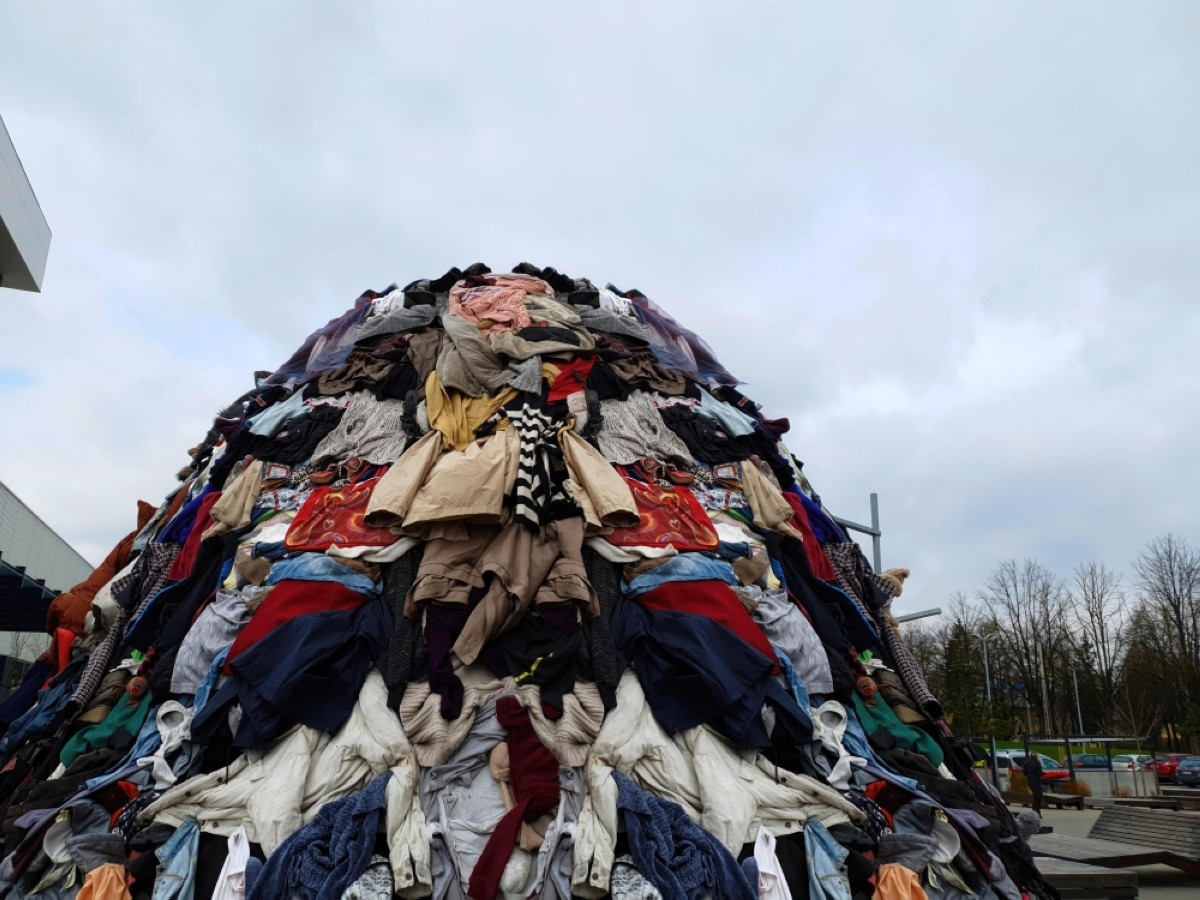KUWAIT: As a fashion-conscious population heavily influenced by the latest styles from celebrities and social media influencers, Kuwait may be a major contributor to the rise of the fast fashion industry. However, as a wealthy country, if it were to strictly support ethical trade policies and regulations, it could drive substantial transformation within the industry, according to Dr Esraa Al-Shatti, a Kuwaiti professor of luxury management and an advocate for sustainable and ethical shopping practices.
Dr Al-Shatti defines fast fashion as "the rapid production of a high volume of affordable clothing that replicates luxury styles,” a model unfortunately embraced by most brands available today online or in shopping malls. While the model may seem appealing to many, she brings one to question, what are the hidden costs behind these privileges?
In favor of maximizing profits and attracting as many consumers as possible, Dr Al-Shatti warns that fast fashion often disregards labor rights protections and environmental responsibilities. "Workers in the fast fashion supply chain often endure dangerous conditions. Many textile factories, especially in low-wage countries, subject workers to unsafe environments, low pay, and poor working conditions.” Dr Al-Shatti said.


Quality over quantity
Environmentally, she noted that the rapid production cycles and low-cost strategies of fast fashion lead to the quick degradation of clothing, which accounts for approximately 10 percent of global carbon emissions, according to a March 2023 report by the United Nations Environment Program (UNEP). This, in turn, results in excessive waste generation. In addition, the industry’s extensive use of water and harmful chemicals causes severe pollution of water sources and depletes natural resources.
Instead of blindly following trends and falling for the allure of low-cost clothing, Dr Al-Shatti believes it’s important to "take the time to think and reflect on purchases, rather than making impulsive decisions.” She advised prioritizing quality over quantity, by investing in durable, well-made items supporting a more sustainable model, which can be achieved by choosing retailers with transparent and ethical supply chains.
Another option that Dr Al-Shatti brought to table is to support local brands, as many of them adhere to proper ethical regulations and prioritize high-quality, sustainable practices. "While these options may come at a slightly higher price, purchasing from ethical sources is a far better choice than buying in bulk from fast fashion brands,” she said.
Founder of Ecotistical, a sustainable fashion brand in Kuwait collaborating with around 25 international small businesses that support ethical and sustainable practices, Aisha Almuneefi stated that the higher costs associated with her ethical practices are unavoidable. "When you do things the right way, it’s going to cost more,” she said. Dreaming of a future where "all clothing is sustainable”, she added that higher pricing should not deter people from supporting local brands, as they should recognize that "the low cost of clothing is often achieved at the expense of others, including exploited labor and the use of harmful materials.”
In contrast, she supports brands that use recycled, upcycled, and organic certified materials, ensuring their manufacturing processes are as eco-friendly as possible by minimizing energy and water consumption. They adhere to vegan and cruelty-free standards, with non-toxic dyes and no harm to animals. Also, they prioritize fair wages and ethical working conditions, providing their staff with living wages, healthy work environments, and reasonable hours.
Encouraging people to connect their purchasing decisions with their broader impact on the world, Al-Muneefi dreams of a future where the distinction between sustainable and non-sustainable clothing no longer exists. She envisions a world where "all clothing is sustainable.” "There’s no business operating on a dead planet. If we, as business owners, don’t preserve the planet and advocate for human rights, we are ultimately harming ourselves and others,” she said.
Nadia Salem, a fashion enthusiast and mindful shopper in Kuwait, has adopted a thoughtful approach to her wardrobe for several years. "My philosophy is to buy only what you need and be mindful of how it fits into your style and the pieces you already own,” she said. This approach leads her to limit her purchases to just two or three new pieces each season.
Shop your closet
Before shopping at the mall or ordering online, Salem engages in what she calls "shopping her closet.” "Every few weeks, I spend some time looking at the pieces I have and try to create new combinations or style them differently to match the trendy aesthetic,” she said. When she decides to add something new to her wardrobe, she chooses items that can be worn in multiple ways and that align with her personal style. "I don’t buy something just because I saw it on a fashion blogger or celebrity,” she said.
To minimize clothing degradation and reduce the environmental impact she tries to pick materials that are of good quality and take care of her pieces to make them last as long as possible. "I have some items that I’ve been wearing on and off for 15 years, and they still look brand new and relevant,” she added. Even though it’s not her responsibility to regulate clothing production standards, she believes in her role to make a difference, which aligns with Muneefi’s philosophy. "Consumers should understand that they have an impact. If they stopped purchasing clothes that don’t align with their values, perhaps fast fashion brands would stop selling or producing items that don’t reflect those values,” she said.

